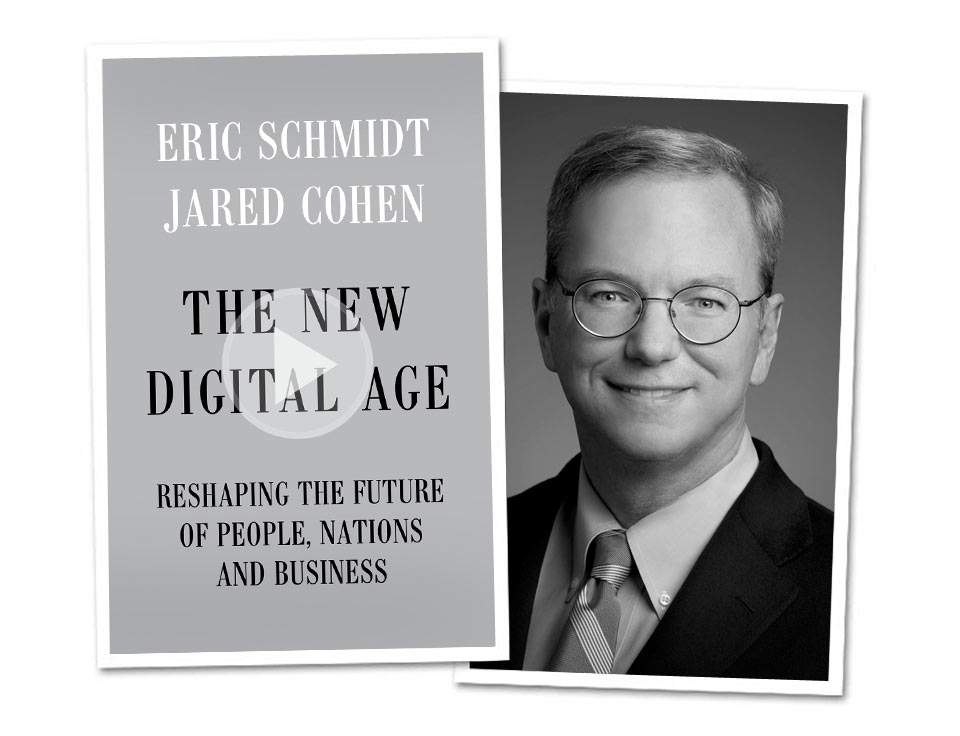
Google’s Executive Chairman gives us a primer on his new book, The New Digital Age: Reshaping the Future of People, Nations and Business, co-written with colleague and Google Ideas Director Jared Cohen.
- The most revolutionary change we can expect in this new digital age, on an individual level, is…
Five billion new people will connect to the Internet, the vast majority of whom live in parts of the world with the greatest number of challenges. For most of these newly connected citizens, many living under autocratic regimes, they will have a smartphone for the first time in their lives. This shift — from having little information to being able to touch the world through a screen — will usher in the greatest shift in individual empowerment in human history.
- And on a national/state level…
There are two ways to think about this. First, the relationship between governments and people will change dramatically. Governments will find it impossible to be as controlling as they were in previous centuries. It is hard enough to maintain order and control in a physical world governed by laws, but connect five billion new people to the web, and this becomes increasingly difficult. Dictators will no longer be able to impose news blackouts. Every evil action will be captured on video and posted online. Second, the nature of how states relate to each other will change. States will do things to each other in the virtual world that they would never do physically. If you look at the U.S. and China, for example, their physical relationship is complex, but by all accounts they are allies. In the virtual world, the two countries are as adversarial as one can imagine.
- The top three websites I visit on a daily basis are…
Google (I essentially live on Google). The New York Times and Wall Street Journal. And The New Digital Age — OK, not on a daily basis, but I want you to buy my new book.
- And the top three apps I use…
Google Maps, Google Docs and Google+.
- If there’s one thing I want readers to take away from this book, it is…
We start with the premise that no nation is worse off as a result of the Internet. Connect 5 billion more people and this only becomes more true. But as we all know, the world is not perfect and with more connectivity we have greater visibility into the challenges that exist in every corner of the globe. It would be irresponsible to ignore these, and our book offers a guide to how we can navigate towards a safer and more prosperous future.
